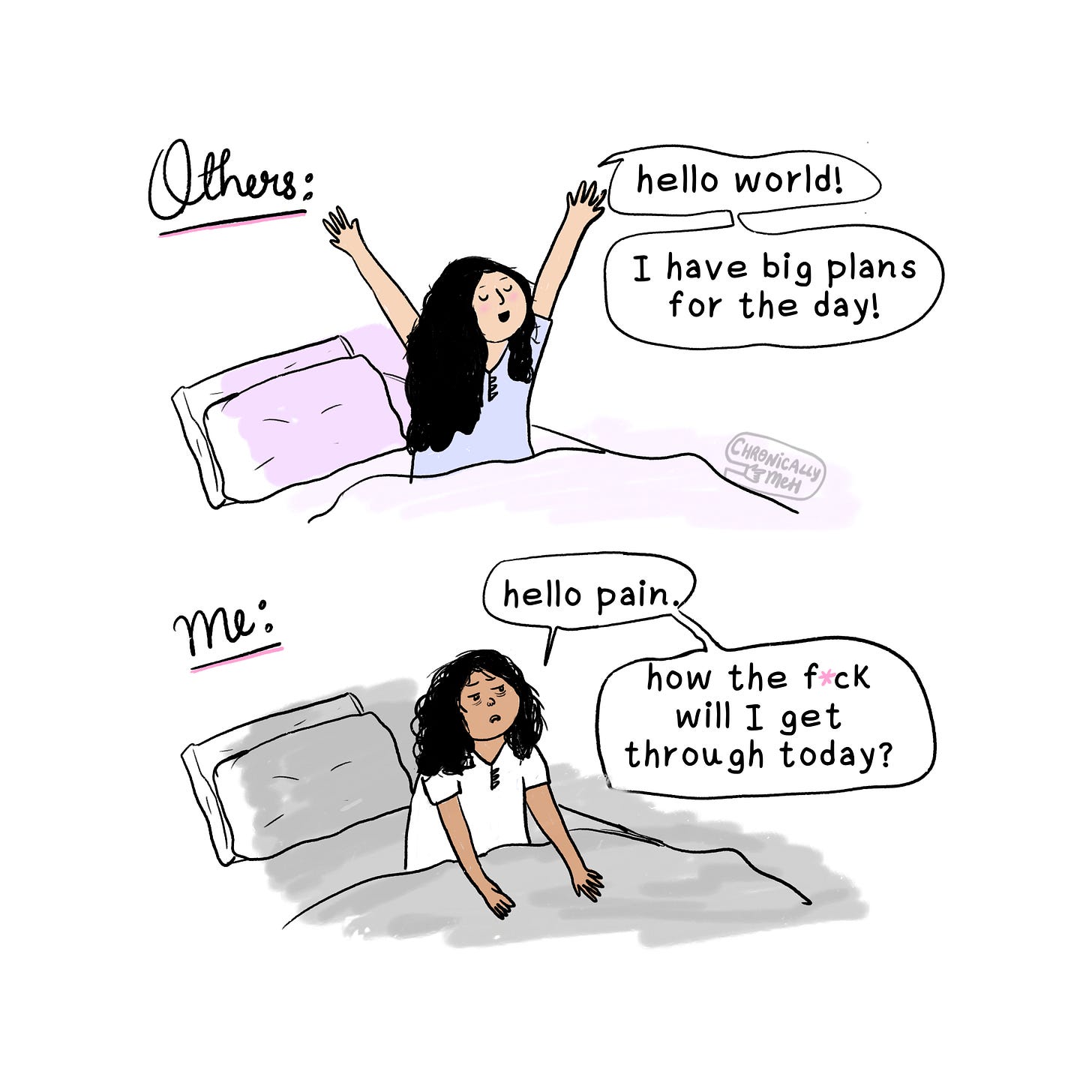"It could be worse"
It could also be better.
“It could be worse” is the worst coping mechanism ever.
We say it to ourselves when life feels unbearable, like it’s some kind of comfort. We say it to others, trying to deflect their pity or concern. And sometimes, we hear it from people who just can’t handle the awkwardness of our reality.
Sure, it could be worse.
I could have a new, terrifying diagnosis. I could be homeless. I could be living through an apocalypse where the only food left is unseasoned chicken breast (and I’m a vegetarian). Yes, it could always be worse.
But you know what? It could also be better.
It could be so much better.
I could wake up pain-free.
I could wake up with the energy to do more than just survive the day.
I could not have to explain why some days I’m fine, and other days I’m not.
I could exist without constantly masking how I’m really feeling just to avoid making others uncomfortable.
I could not feel guilty for needing more time, more space, or more support than others.
I could live in a world where we don’t have to break ourselves just to prove we deserve to belong, where people understand the thin line between “pushing through” and “burning out”.
I could live in a world where suffering is not a competition.
The lie of “it could be worse” is that it’s meant to silence both our pain and our hope. It tells us to stop complaining, to stop asking for more, because we should just be grateful.
And don’t get me wrong, gratitude is fine. It’s good even. I can be grateful for my good days, for the people who support me, for the fact that I’m still here, still fighting. But gratitude doesn’t cancel out the fact that I deserve better.
You deserve better.
Read this twice: You CAN ask for better.
And yes, it is difficult to ask for better. It means facing the fear of appearing weak, of being judged or rejected. It means challenging the voice inside that says you don't deserve it, that you shouldn't be a burden. It means overcoming past hurts and societal pressures that tell you to stay silent. It means finding the words to express what you really want. But, before all that, it means knowing what "better" truly is.
And it doesn’t have to be black and white.
You can feel grateful for the crumbs you’ve managed to gather while also being angry that the system is rigged to starve you. You can acknowledge that someone else’s pain exists without minimizing your own. You can hold space for the duality of “I’m glad it’s not worse” and “I still deserve more.”
Accepting “it could be worse” as a full-stop truth is just a way to keep us stuck. Stuck in silence. Stuck in systems that fail us. Stuck in a loop of convincing ourselves that asking for better is asking for too much.
So, next time that thought creeps in, stop and remind yourself:
Yes, it could. But that doesn’t mean it shouldn’t be better. I CAN ask for better.
Whether "better" actually shows up... well, that's a tale for another time (and maybe another email). 😉
Taking a break from “better,”
Shruti.




